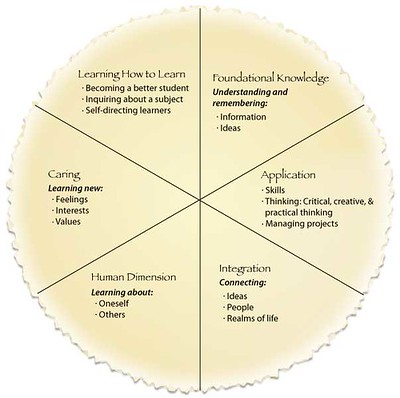The support team has taken stock of where you all are–you need a break!– and a lot of other things, including what we know about student feedback on our collective work. Indications are that we have been doing pretty OK in terms of student satisfaction and willingness to stick with us as we all learn how to do this. But we know we can do better, and there are a lot of people working to get every student to continue and register for the spring.
So, take a well-deserved beak. As you start to think about spring courses, maybe identify one or two things that you want to work on and get better at. Think small steps and about developing for the longer term. Elsewhere in this newsletter we are sharing ideas about where your energy may be most impactful for students, and we have prepared a short reflection that you can use on your own or that you can do online and share with us anonymously (which is helpful for getting a sense of where you all are). Find the survey here.
We also want to apprise you of some resources that will be available for you as you plan for the spring:
We will have generic course templates available for you to use–adapt and plug in your own information–as you see it.
We have continuing access to instructional design consultants starting now through to February. They can help you to figure things out AND they can do some basic tasks for you. They can even help to adapt your course materials like lectures you have given or tests you need to convert, to online materials. Email the CU Canvas team to get started working with one.
We plan to make some new resources available to you. The majority of them will be short videos and links to helpful information on some of the key skills that we know you will be thinking about. You will be able to find them after the new year on the Remote Delivery Resources site. We plan to cover the following topics:
• Organizing your Canvas course
• Creating compelling course materials for guiding and instructing students
• Making sure your course materials are accessible
• Creating opportunities for students to interact with each other meaningfully
• Creating opportunities for active learning in a remote context
• Expanding your skills using Canvas tools for assessment and feedback
• Using the Canvas gradebook
Like I said, these and other salient subjects will be covered in on-demand resources you can access anytime.
We will also hold some workshops in January, mainly for you to get together with others to talk about your practice and share ideas around some key themes. These sessions will be for people who want to get together and do work that is best done in-person, albeit in a synchronous format. Here are topics we are planning:
• De-Colonizing the syllabus
• Recognizing the “mental models” that guide our teaching
• Handling student participation in Synchronous courses
• Assuring student and faculty health and wellness during the dark winter.
These and other workshops and special meetings will be finalized soon!
Have a specific question? Don’t see the topic you need help with covered above? Let us know how we can help you! Just send an email to the CU Canvas team with your idea!




[…] Ready to up your Canvas Game? Here are some next steps! […]